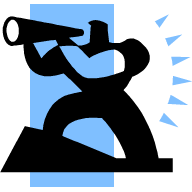 |
||
|

Kathy Wells Paauw
Productivity Consultant
Certified Business & Personal Coach
Trainer
____________
FREE EZINE
Please share this article with others. Forward it to your friends or print it for easy distribution within your office.
Was this forwarded to you by a friend? Click on the logo below to subscribe today.
Paauwer Tools has been published monthly since 2000. Click here to view all previous issues.
____________

Read about Kathy's book, The Music of Your Heart.
____________
FREE BLOG
___________
FREE TELECLASSES
Attend FREE classes taught over the phone. Learn how to increase your productivity with tips, strategies and techniques that can benefit your professional and personal life immediately.
___________
FREE TIPS
Check out my FREE tips. I offer many valuable tips about time management and organization.
____________
Do you qualify for a FREE collaborative interview by phone? Find out by completing a brief organizational assessment.
____________
VISIT OUR OTHER
WEB SITES:
Keep in touch with family, friends, prospects and clients by sending a quality personalized greeting card in the mail for a dollar. We'll show you how to create and send a personalized greeting card in 2 minutes!
____________
PRODUCTIVITY TOOLS
More productivity tech tools...
_______________
RECOMMENDED BOOKS
Check out our links to some great books:
___________
PERMISSION TO PUBLISH THIS ARTICLE ELSEWHERE
If you like this article, feel free to share it with your own list, post it on your site or on your blog, or print it out to distribute...as long as you leave the text intact, include all hyperlinks, and include this at the end:
©2000-2012 Paauw Enterprises, Inc.. All Rights Reserved. Wouldn't you love to stumble upon a secret library of ideas to help you de-clutter your life so you can focus on what’s most important? Kathy Paauw offers simple, yet powerful ideas, on how to manage your time, space, and thoughts for a more productive and fulfilling life. Visit
Subscribe to ezine at
___________
|
Follow Your Passion
This is the time of year when we celebrate students graduating from school and embarking on the next level of education or the start of a new job. Many graduating from colleges, universities and trade schools today are so focused on getting a job that they often forget to focus attention on what they are most passionate about. Some are so busy "getting by" that they completely lose sight of some of their dreams and goals and they end up getting stuck doing something they hate. Even when it is unpleasant to do so, sticking with the known may be the "safe" choice. However, our desire to be "safe" sometimes paralyzes our ability to exercise our free will. From childhood on, most of us have been programmed to play it safe, and this often affects the career choices we make as adults. We forfeit our freedom of choice through our own thought processes. I frequently hear my clients say, "I have to…" or "I should…" And when I hear those phrases I often ask, "Do you have to or do you choose to?" There are very few things in life that we have to do. Yet some of us forfeit our choice to the point of seeing our options in life as limited. I know about this "paralysis" from personal experience. For 13 years I stayed in a stressful career that I did not find fulfilling. Not only was I unhappy, but the quality of my time with family suffered, as well. The more time I invested in that career path, the less at choice I felt. At one point I took an exam to receive a special certification in my field. When I passed the exam and was certified, I felt like there was no turning back! I told myself, "I can't leave this field now…look how much I've invested in it!" And besides, I had no idea what else I could possibly do. Fear held me back, until one day the pain of not making a change outweighed the fear of the unknown. In the midst of experiencing all of this pain I was laid off, which forced me to think about my choices. I felt like a baby bird being pushed out of the nest …and I learned to fly! Within a couple of years, my business was born. I've never looked back with a single regret. "Life is not measured by the number of breaths we take Does your life work take your breath away? I am struck by how many people live for the weekends because they dislike their work so much. If you can relate to this, imagine how it would feel to have the kind of work that you were so passionate about that you woke up before your alarm went off and you couldn't wait to get to work! If you have a job you hate, face the fact and get out! Life is too precious to spend it doing something you don't enjoy. Loving what you do makes all the difference! What do you want? What is your "why" for wanting it? Dig deep when you think about your compelling "why" because that is what will carry you through the tough times when you feel like quitting.
Do you focus on what you WANT or what you DON'T WANT? Whatever you focus on, that's what you'll get more of! In order to focus on what you want, you must be willing and able to let go of thoughts that keep you focused on what you don't want. One way to start is to consider limiting how much and what kind of news you listen to and read so you can keep your focus on more positive things. Think of something you are currently struggling with. What if you were to focus on what you DO want and what you can do to move you in that direction? Your language or self-talk is a very important part of this process. When you stop saying 'but' and replace it with 'and,' you're ready to shift your focus. Here's an example: "I hate my job, BUT I don't have time to look for a new one." vs."I hate my job, AND I'm carving out small pockets of time to explore ways to put my passion into action." Start by identifying the destructive voice in your head, which leads to the unpleasant emotions or mental habits that stop you from letting go. This usually shows up as guilt, negative self-talk, perfectionism, or focusing on what other people think. Remember that what other people think of you is none of your business…it's theirs! You cannot manage someone else's thoughts; you CAN manage your own. If other people say or do something that upsets you, let go of the feeling (anger, frustration, hurt, etc.) that you associate with what they say or do. It's not what they say or do, but rather what you THINK about what they say or do, that causes emotional pain. You are the only one who can control what you think. For those who are consumed by fear, one technique that may help is to keep a Worry Log -- a place to write down all of your worries and fears with a date next to each entry -- and then let go of them. Check back monthly to see what percentage of your worries and fears actually came true from the previous month. After doing this reality check for a period of weeks or months, perhaps you'll be able to spend less energy and thought on your worries and fears. You'll notice that most of them will never come true. When you worry, it changes nothing but your state of mind. This practice has helped me to put worry in its place and let it go of it. Remember that the past and the future don't exist, and yet we often allow them to rule our lives in the present. Rather than trying to get TO somewhere or get FROM somewhere, commit to living in the present. The past cannot be changed, and the future can only be affected by what we do in the present. Most people focus on problems rather than solutions, so they just get more of what they don't want! The brain cannot focus on identifying solutions when it is focused on the problem, since it can only focus on one thing at a time. The book: Switch: How to Change Things When Change Is Hard The emphasis here is in the "first small sign," not on the solution itself. The "miracle question" reminds us that people suffer when they put their attention on what they DON'T want. This technique provides a way to get you focused on what you DO want. What is a "first small sign" of progress you will find when you focus your attention on what you want?
© 2013 Paauw Enterprises, Inc., All Rights Reserved. |

